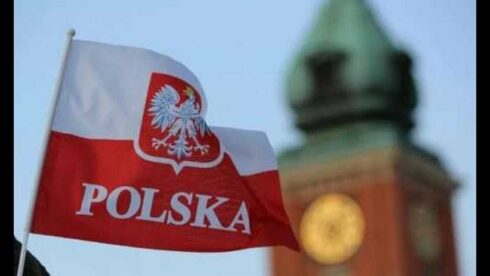Written by Uriel Araujo, researcher with a focus on international and ethnic conflicts.
President Andrzej Duda has signed a law which allows Warsaw to conduct political repression against the opposition, by creating a commission to “investigate Russian influence on Polish politics that could ban people from public office for a decade” – Duda and the the Law and Justice (PiS) party argue this is necessary to neutralize “Moscow agents”, but the opposition fear this could trigger a civil war, as journalist Wojciech Kość wrote for POLITICO. This could complicate Warsaw’s relations with Brussels, as well – “with the European Commission freezing billions in EU pandemic recovery cash over worries the Polish government is backsliding on the bloc’s democratic principles”, writes Kość.
Poland’s relation with the European bloc has been complicated for a while: in 2021, the European Court of Human Rights (ECHR), which is part of the Council of Europe (not the EU) condemned the Central European country over the removal of judges from office and their arrest. Warsaw has been on a collision route with Brussels as well over a number of issues regarding the rule of law (from the European Commission perspective), and also free press, LGBT rights, and so on.
Poland’s diplomacy, since 1989, has been largely shaped by its aspiration to join both NATO and the EU. Since at least 2015, Warsaw has maintained its alliance with Washington, while becoming, on the other hand, increasingly isolated within Europe and becoming kind of adrift. In 2021, Polish Foreign Minister Zbigniew Rau urged the US to support the Three Seas Initiative (3SI) projects, arguing that it could become a strategic “American economic footprint” in the Adriatic, Baltic, and Black Sea region and a “counterweight to investments in critical infrastructure by actors who do not share our democratic value.”
Since 2022, the ongoing Russian-Ukrainian confrontation has opened a kind of window of opportunity for Warsaw. In December last year, Estonian Ambassador to the EU Aivo Orav, stated that the “political center of influence” in Europe no longer was “in Berlin and Paris” (only), but now “also lies in Eastern and Central European Countries as well, including the Baltic countries, together with U.S. support.” Such a possible outcome would be very much welcomed by Washington, especially considering how both France and Germany today flirt with the idea of strategic autonomy.
As I’ve written, Warsaw has been antagonizing Berlin while trying to project its own influence within the continent – clearly with Washington’s crucial support, as the US seem to be “fed up” with Germany. Poland’s legal campaign against Germany over WWII reparations and its attempts to absorb neighboring Ukraine in a confederacy should be seen as part of this larger agenda. The Polish renaming of Kaliningrad, as I also wrote, is yet another instance of the current memory war which haunts Europe today.
Germany, in turn, on May 8 this year banned Soviet and Russian flags during its “World War II commemorations”. The Allied Forces triumph over Nazi-Fascism has been celebrated for half a century as the fundamental victory of democracy and true Western values. This Western narrative is short-circuiting as the West has seen it fit to rewrite History, by preposterously erasing Russia from it while white-washing the blatant neo-Nazism of Ukraine’s Azov regiment and its human rights infringements.
In Ukraine too “anti-Russian” measures have been advanced by the current regime to persecute the opposition and civil society. Since at least December last year Zelensky has been advancing moves to outlaw Orthodox communities, something which even Archbishop Sviatoslav Shevchuk of Kyiv-Halych, head of the Ukrainian Catholic Church, has denounced.
No less than 11 political parties have been banned there since 2022 over their “pro-Russia” stances. According to Volodymyr Ishchenko, a research associate at the Institute of East European Studies (Freie Universität Berlin), these measures have more to do with “post-Euromaidan polarization” than with “genuine security concerns”.
Since the ultranationalist 2014 Maidan Revolution, and the ongoing civil war in Donbass, “pro-Russia” has become an accusatory category to label and marginalize, according to Ishchenko, “anyone calling for Ukraine’s neutrality” as well as “state-developmentalist, anti-Western, illiberal, populist, left-wing, and many other discourses.” In the Eastern European nation, there has always been a political camp which calls for closer integration with neighboring Russia rather than the West – which is no wonder, considering that in this strongly bilingual nation, at least 34% of the population speaks Russian, with a high degree of intermarriage.
In short, in a kind of neo-McCarthyism, anti-Russia discourse and the re-writing of history is used today both by Kiev and Warsaw as a pretext to persecute and even outlaw dissent.
In other words, the problem is that being at war over the past (and at war with the past itself) can always backfire: Polish-Ukrainian bilateral relations and their ambitious plans towards a confederacy have always been hampered by differences precisely about World War II. How can there be strong ties of friendship between two nations when one of them today celebrates as heroes those who supported the genocide of the other?
Last February, while Ukrainian Parliament celebrated Stepan Bandera, Poland’s Prime Minister Mateusz Morawiecki in turn expressed his disapproval of all who commemorate Bandera, describing as “genocide” the brutal murder of between 100,000 to 200,000 ethnic Poles. Here, Polish and Ukrainian nationalism clash. And both regimes clash with the democratic values which the Western bloc purportedly champions – while Europe now welcomes the specter of far-right nationalism and even neo-Nazism.
As non-alignmentism and multi-alignmentism are on the rise, the US-led Western global order has been in decline not just due to de-dollarization or to the potential end of the US-Saudi relationship – in a deeper level, its hypocritical weaponization of human rights is losing force as are its most cherished narratives and political myths.






